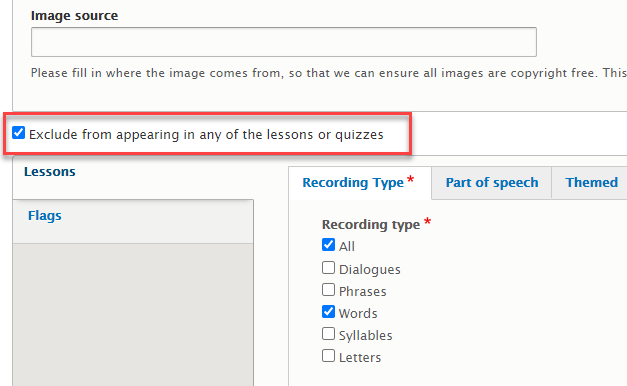In some languages, such as Croatian (and similarly structured languages like Polish and Russian), nouns follow a case system. So, in Polish for example, you don't just have the word "dog", but rather:
- pies (nominative)
- psa (genetive)
- psu (dative)
- psem (instrumental)
- psie (locative)
How to handle these in Lingopolo?
Always create an entry for the root dictionary form
e.g. kava https://lingopolo.org/
Create an entry for each other version which appears, when it appears in a sentence
e.g. kavu, kavi, kave, and name the version according to the case, e.g. "coffee (accusative)", "coffee (genitive)", or whatever name you usually call the different forms
Fill in the "See also" field linking from the other versions to the root form
e.g. "airplane (genitive plural)" will have a "See also" link to the root form "airplane".
Use the correct form of the word in the example sentences
For example in the Croatian sentence for "There are a lot of airplanes in an airport." the word for airplane is the "airplane (genitive plural)" form. It is this form of the word which is used in the Literal Breakdown.
Select the checkbox "Exclude from appearing in any of the lessons or quizzes" for the non-root forms
For the non-root forms, you should check the "Exclude from appearing in any of the lessons or quizzes" checkbox:

This ensures that students will be taught all the basic root forms of the vocabulary before they tackle all the different forms of the word.
As an example, imagine a student wants to learn the words for the animals. They want to learn:
- dog
- cat
- horse
- etc.
They don't want to be super confused (to begin with at least) with all the complexity of:
- dog (nominative)
- dog (accusative)
- dog (genitive)
- dog (dative)
- cat (nominative)
- cat (accusative)
- cat (genitive)
- etc.
When we check this checkbox, then the word lessons will only include the root forms.
Will the student still be taught all the different forms? Yes, but they will learn them in the context of sentences.
